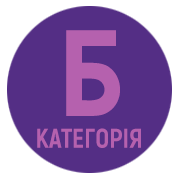TRAINING OF FUTURE DOCTORS OF PHILOSOPHY IN THE FIELD OF SPECIAL AND INCLUSIVE EDUCATION: U.S. EXPERIENCE
DOI:
https://doi.org/10.32782/inclusion/2023.1.1Keywords:
higher education, training of future doctors of philosophy, training of post-graduate students, special and inclusive education, USA.Abstract
The article reveals the content and features of the organization of the process of PhD training in special and inclusive education in American higher education institutions using the example of the educational and scientific program “Special education: PhD in the field of social, emotional and behavioral health and inclusive education”, introduced by the College of Education and Social Services of the University of Vermont. It is shown that the studied educational and scientific program is interdisciplinary and covers such subject areas as special education, social work and health care, involves post-graduate students within the educational and scientific component in interdisciplinary cooperation for the promotion of justice and inclusiveness in education. The specified program envisages the involvement of PhD students in joint applied research aimed at the development and testing of programs and practices in schools and local communities. The requirements for admission to the educational program and the content of the core courses of the educational component are outlined. Features that can be creatively implemented in the practice of training post-graduate students in Ukrainian higher education institutions have been identified, in particular: a) the interdisciplinary nature of educational and scientific programs, which allows students to form a more thorough understanding of the subject of research and focus on the aspect that best suits their scientific interests; b) sequential mastering of the educational and scientific components of the educational and scientific program with the mandatory completion of a comprehensive qualification exam, which opens the possibility to register for mastering the credits of the scientific component (writing and defending a dissertation); c) applied nature of scientific research of graduate students, their practical orientation, focus on solving problems related to the functioning of the local community, education institutions and families that belong to it.
References
American Association for Employment in Education. 2021–2022 Educator Supply & Demand Report (Digital Access). URL: https://aaee.glueup.com/event/2021-2022-educator-supply-demand-report-digital-access-53997/.
Boichenko M. Research motivation of PhD students under martial law: challenges and ways of improvement. Studies in Comparative Education. 2022. № 2. Р. 5–11. DOI: https://doi.org/10.31499/2306-5532.2.2022.270856.
PhD Training Under Martial Law in Ukraine / I. Chystiakova, O. Ivanii, O. Mekhed, Yu. Nosko, S. Khrapatyi. Journal of Higher Education Theory and Practice. 2022. Vol. 22. № 15. Р. 151–163. DOI: https://doi.org/10.33423/jhetp. v22i15.5568.
Sbruieva A., Boichenko M. Societal dimension of doctoral education in the European higher education area: priorities and trends. Studies in Comparative Education. 2020. № 1(39). Р. 42–52. DOI: https://doi.org/10.31499/2306-5532.1.2020 .211317.
The University of Vermont. College of Education and Social Services. Special Education: PhD in Social, Emotional, and Behavioral Health and Inclusive Education (PhD). URL: https://www.uvm.edu/cess/doe/special-education-phd-socialemotional- and-behavioral-health-and-inclusive-education-phd.







